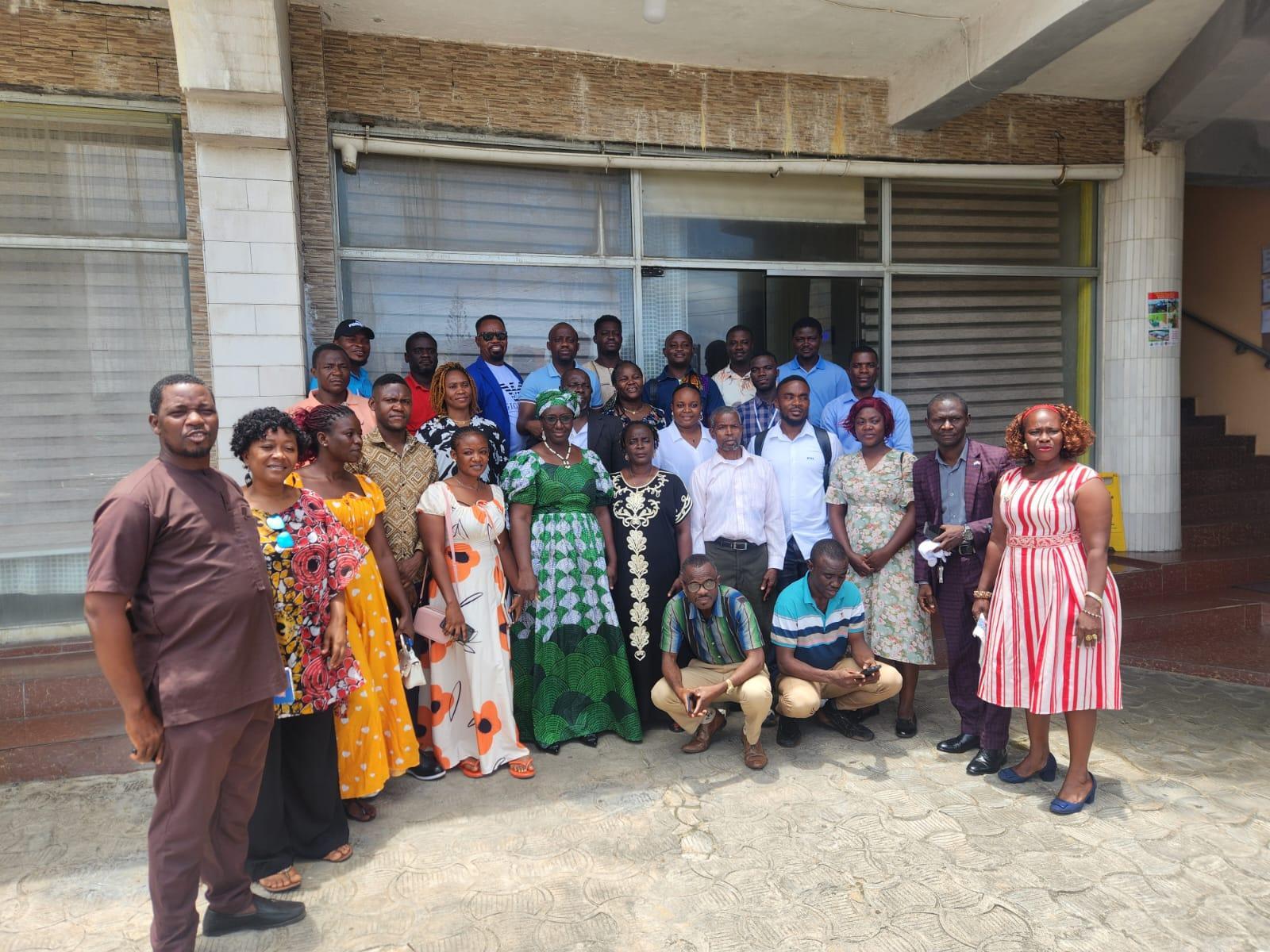Africa-Press – Liberia. ActionAid Liberia, in collaboration with the Liberia Coordinating Mechanism (LCM) held a one-day capacity assessment with thirty (30) local Civil Society Organizations (CSOs) drawn from Montserrado, Bomi, Margibi, Nimba, and Lofa Counties.
The one-day workshop aimed to strengthen and equip community-based organizations (CBOs) CSOs to play a more effective role in health system strengthening.
The initiative, which targets grassroots institutions across Liberia, seeks to enhance the organizational, financial, and technical capacities of CSOs/CBOs to ensure they are better positioned to respond to community health and other development challenges.
Building Stronger Institutions
In a presentation, ActionAid’s Business Development Manager, Madam Victoria Torlor-Koiquo explained that the project’s core objectives include strengthening leadership and governance structures of CSOs, improving financial management, and enhancing their project management and technical capacity.
The ActionAid official also emphasized the need for gender-responsive approaches to ensure inclusivity in leadership and service delivery, while also bolstering monitoring, evaluation, and learning (MEL) systems for greater accountability and impact tracking.
“Community-based organizations are at the heart of service delivery in Liberia. By building their capacity, we are not only strengthening the health system but also ensuring that vulnerable populations are reached with quality and inclusive services,” she told the gathering.
Capacity Assessment and Selection
As part of the first phase, LCM conducted a capacity assessment of selected CSOs/CBOs across several counties. The selection process was designed to capture both central-level constituencies and county-based organizations, which include 24 from Montserrado, one from Bomi, two from Margibi, two from Nimba and one from Lofa.
The assessment process employed a structured tool and relied on focus group discussions with staff from each organization, including program, finance, HR, and procurement teams.
Key Findings
The assessment revealed that all participating organizations are legally registered in Liberia, a critical qualification for CSOs. However, 14% of them (4 CSOs) had expired business registration certificates, though renewal processes were underway.
On human resource management, 83% of the assessed organizations were found to have HR policies aligned with current human rights standards in the workplace, a positive indication of their commitment to accountability and fair labor practices.
The findings also highlighted varying levels of financial sustainability, with many organizations facing challenges in maintaining operations during funding gaps, particularly when donor support is delayed.
Strengthening Community Voices
By addressing these gaps, she revealed that ActionAid and LCM aim to create a stronger, more resilient civil society that can deliver sustainable health interventions while ensuring transparency, gender inclusion, and accountability.
Accordingly, she noted that the next phase of the project will focus on delivering tailored training and technical support to the selected CSOs/CBOs, enabling them to design, implement, and monitor community health programs more effectively.
Also speaking at the engagement, Mr. Gabriel Stans of the Liberia Coordinating Mechanism reiterated his commitment to CSO empowerment.
He emphasized that strengthening these institutions is essential to ensuring their effectiveness and smooth operations.
Over the years, with the support of the Global Fund, CBOs have played a vital role in the broader health system by providing essential services such as health education, testing, treatment adherence support, and advocacy.
Their community-based approach fosters trust and encourages health-seeking behaviors among populations that may otherwise hesitate to access formal healthcare services due to stigma, discrimination, or fear of punitive measures. Furthermore, CBOs have served as a bridge between marginalized communities and national health systems, ensuring that these populations’ voices are heard in health policy discussions and decision-making processes.
The Global Fund’s Resilient and Sustainable Systems for Health (RSSH) grant aims to strengthen the capacity of these CBOs to effectively address health challenges in Liberia.
This initiative is particularly significant in the context of the country’s post-COVID-19 recovery and ongoing health system strengthening efforts. The RSSH grant supports targeted capacity- building initiatives to enhance CBOs’ leadership, governance, project management, technical skills, and financial management.
By empowering these organizations, the Global Fund seeks to improve health outcomes for communities affected by HIV, TB, and malaria, ultimately enhancing the overall resilience of Liberia’s health system.
Through its partnerships with CBOS, the Global Fund is committed to fostering an inclusive approach to health service delivery that prioritizes the needs of key and vulnerable populations (KVPs). This commitment aligns with the Global Fund’s broader mission to ensure that everyone, regardless of their circumstances, has access to high-quality health services. Ongoing investments and capacity-building initiatives are crucial for enhancing the sustainability and effectiveness of health programs in Liberia, contributing to the country’s goal of achieving universal health coverage and improved health outcomes for all citizens.
In line with this focus, ActionAid Liberia was engaged by Plan International to conduct a comprehensive capacity assessment and capacity-building initiative for thirty-six CBOs across eight counties in Liberia. This initiative will first assess the existing capacity gaps, followed by the implementation of targeted interventions to address the identified challenges.
Overall Objective
The overall objective is to validate the capacity assessment findings and proposed interventions with participating CSOs/CBOs, ensuring alignment with their organizational needs and priorities.
For More News And Analysis About Liberia Follow Africa-Press






